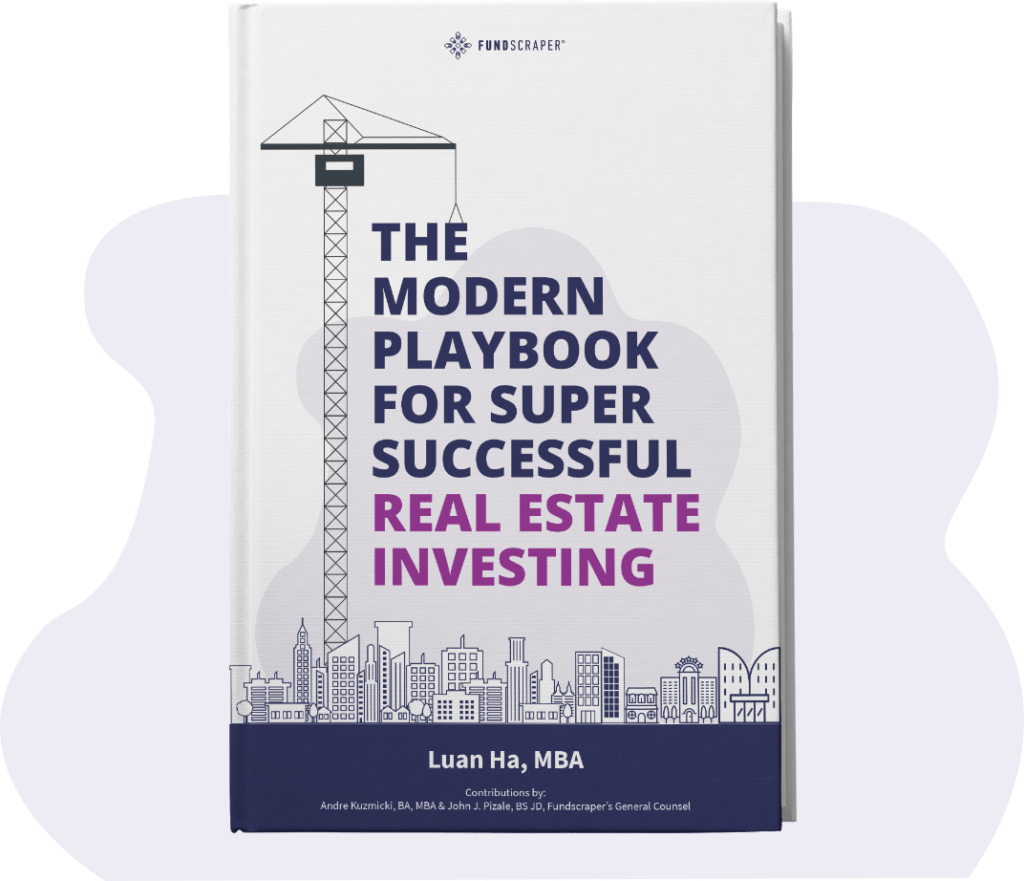The Loan-to-value (LTV) ratio is a financial term used in the mortgage lending industry to express the ratio of the principal amount of a given loan to the value of the secured asset being financed. The term is commonly used by banks and lenders to represent the ratio of the total indebtedness on a property as a percentage of the total value. The valuation of a property is typically determined by an appraiser, but can also be based on an assessment of current market conditions and recent comparable sales. The higher the LTV, the riskier the loan is for a lender.
Tag: Returns
Do you guarantee any returns?
Posted on by Sobana Baskaran
No. Fundscraper’s role is restricted to dealing or trading in the various investments posted on its platform. It is not an investment advisor, issuer or guarantor of the deal you choose. Fundscraper’s role is to facilitate your investment as a licensed exempt market dealer. Of our several duties, we have a duty to insure you are qualified to make the investment you desire and to assist in determining whether the investment is suitable for you. Though our team of experienced professionals work diligently to source the best projects sponsored by proven real estate owners, managers, and property developers, there are risks present in every transaction. We provide a summary of the risk factors for each deal we host on our site and for a general overview of risk factors generally when investing in real estate we recommend you read the offering memorandum of Fundscraper Property Trust available on this site. An illustrative example of how investors earn an annualized net return is provided below.
Play Video
How secured is the capital invested?
Posted on by Sobana Baskaran
In secured real estate investment (meaning the investment is ultimately backed by a security interest registered on land), keeping capital safe is the top priority. If your investment is through Fundscraper Property Trust, the average loan to value in the Trust’s aggregate portfolio is approximately 80%, meaning that there is a 20% equity cushion in the event something goes wrong. If you are participating in one of our posted equity investments sponsored by a third party issuer, though your equity investment is not “secured” the way a mortgage is, know our team of experienced professionals have worked diligently to source the best projects sponsored by proven real estate owners, managers, and property developers.
What actions does Fundscraper take in the event of a borrower default?
Posted on by Sobana Baskaran
Fundscraper on your behalf takes the same actions as any other responsible lender. We first work with the borrower to assess what the obstacle to repayment might be. Once we understand the situation, we can work on a solution. If there is no reasonable solution, then we take steps to enforce the security. The value of the security is typically less than the value of the assets we have registered security against. Therefore, if we do have to enforce the security, it is our expectation that there will be sufficient valuable real estate to fully discharge what the defaulting borrower owes which include the expenses incurred enforcing the security.
Does the targeted net annual return include fees and expenses?
Posted on by Sobana Baskaran
While each project is set to deliver a different projected net annual return, the projected net annual return that we advertise is after all expenses and fees have been paid for.
When can I expect to see a return?
Posted on by Sobana Baskaran
a) For debt investments, cash will be distributed as principal and interest payments are collected on the debts, subject to normal processing periods (generally 1-3 days).
b) For equity investments, each project will have its own exit or return strategy and cash will be distributed as the returns or exit strategy comes to fruition, in the priority as stated in the offering documents and investment structure. Fundscraper plans to use a third party trust agent to process the payments, investments, and distributions.
How can I earn returns on my investment?
Posted on by Sobana Baskaran
Every project comes with its own projected returns which typically range between 6-12% in targeted net annual returns. Our management fees will be between 1-2%, sometimes coupled with further participation in the profitability of the undertaking. For the investment term, it is project specific and depends on the projected hold period for each opportunity. On our platform, you will find a combination of both syndicated mortgage opportunities and access to real estate investment trusts (REITs) and like funds. Each fund is structured differently with different redemption rights and minimum investment periods. So, to illustrate what a projected return on a $5,000 investment would look like, assuming a range of 6-12% in net annual returns (net means the management fees have been deducted), you could earn anywhere between $300-600 in annual interest distributions. Added to your original principal, your investment could grow to $5,300-5,600 in the first year. This is just simply an illustration though. To understand how each investment opportunity works and what would be best suited for you, we recommend setting up an introductory call with one of our team members and of course consulting with your own professional advisors in due time.
When are dividends paid?
Posted on by Sobana Baskaran
Dividends and target net annual return depend on the opportunity. In the project listing, we will disclose the dividend frequency and target net annualized return.


